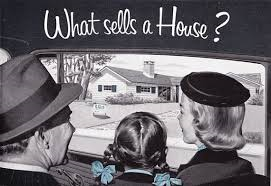Kathleen Finnegan
Home(818) 601-0056
tricks of the trade : negotiating closing costs
 At the end of the home-buying process, you will be faced with closing costs, the fees due at signing are required to complete a home sale. Closing costs can be expensive, but some of those fees may be negotiable. Here are some tips for navigating closing costs.
At the end of the home-buying process, you will be faced with closing costs, the fees due at signing are required to complete a home sale. Closing costs can be expensive, but some of those fees may be negotiable. Here are some tips for navigating closing costs.
Check the Market Temperature
The nature of the housing market may dictate whether the buyer or the seller picks up various closing costs.
If it’s a buyer’s market—a bit cold and homes aren’t selling well—sellers may be more willing to bargain and take on some closing costs.
If it’s a seller’s market—the market is hot and homes are selling quickly—the seller has the advantage and little incentive to give the buyer a break.
However, you shouldn’t accept any fishy-looking fees without asking first.
Which Closing Costs Are Negotiable?
When you apply for a loan, your lender or mortgage broker must provide a good faith estimate (GFE) of fees due at closing.
This is a very useful tool, but bear in mind these are estimates—not guarantees. Compare the GFE to the final closing costs statement and the HUD-1 settlement statement to look for big differences.
Some fees are generated by third parties and typically don’t change very much, no matter where you find your loan. Then there are additional expenses you can’t control, like taxes and government fees.
Other fees may be junk fees—costs that are put in by the lender to pad out the bill. These fees should be able to be negotiated or waived.
Negotiable fees are generally found in the 800s section of the GFE. They may include the following:
- Title Insurance: The lender will recommend one, but you don’t need to accept it. You can shop around, compare fees, and go with the one that suits you best. However, you can’t have this waived.
- Commitment fee: These are just there to make sure you don’t jump to another lender. Ask to have it waived. If you can’t, negotiate that if the loan falls through due to the lender, the fee will not be charged.
- Application fee: Some loans have an application fee. Ask your lender if they will waive or credit this fee towards closing costs.
- Miscellaneous fees: Ask exactly what these are for, especially if they are high.
- Courier and mail fees: With almost everything being digital, your lender should provide evidence these fees were necessary.
- Discount points: These increase your closing costs but reduce your interest rate. If you have discount points and your closing costs are too high, you may want to eliminate them. Talk it over with your lender and be sure to figure out the new monthly mortgage payments if you do.
Just Ask If You Have Questions
It is your right to question anything on your HUD-1 and GFE documents, so do ask questions if you feel a cost is too high or doesn’t make sense.
Simply asking the lender to explain certain fees might be enough for the lender to waive them, particularly if they were junk fees to begin with.
Don’t Get Intimidated by Closing Costs
Even if your closing costs rise significantly beyond your GFE, you may feel pressured to accept them to avoid losing the home to another buyer.
Don’t!
Many lenders would rather close a deal instead of going through the process again with another buyer. Use that to your advantage and be prepared to walk away from the table.
As you review your closing costs, be your own advocate. It’s a good idea to visit a few different lenders and compare GFEs.
Always make sure you receive a thorough explanation for any fees that seem unusual, unnecessary or just too costly.
Thanks for reading!
Kathleen Finnegan
23925 Park Sorrento
Calabasas, Ca 91302
#01193021
Office 818-876-3111
Cell 818-601-0056
 Kathleen has been active in the Calabasas real estate market for over 20 years. Have a question?
Kathleen has been active in the Calabasas real estate market for over 20 years. Have a question? 

